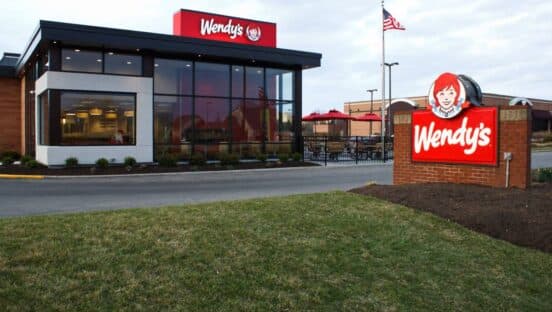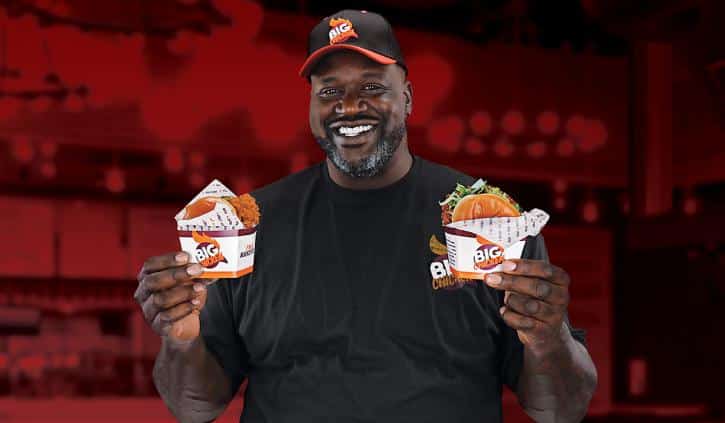
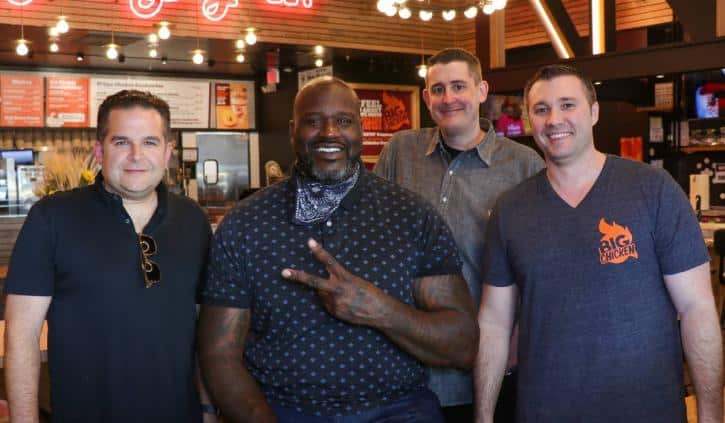
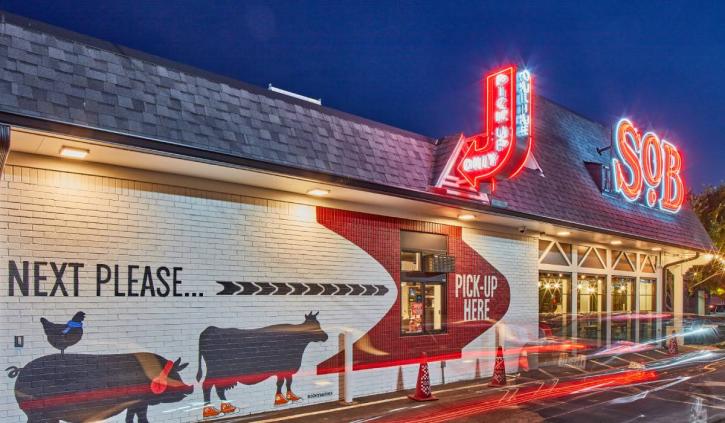
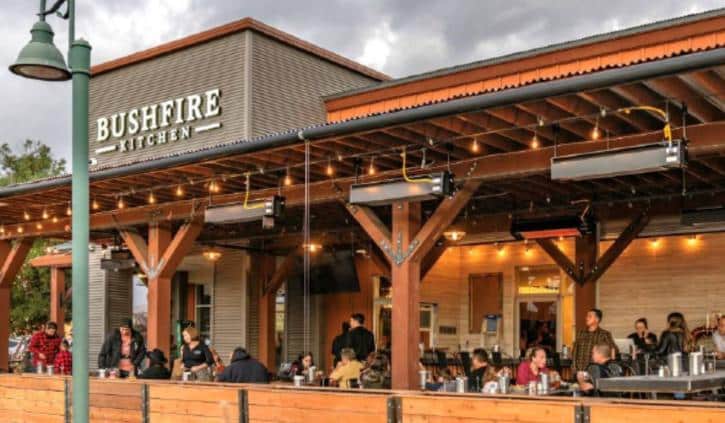
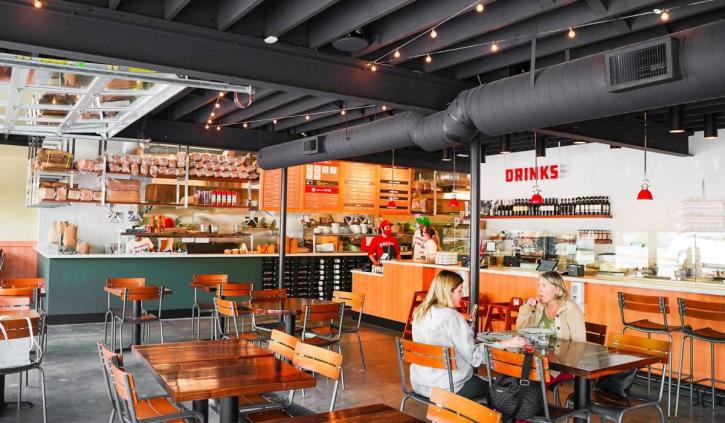
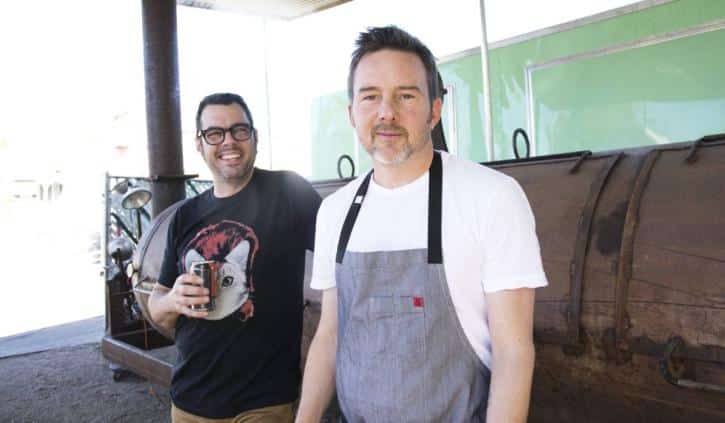
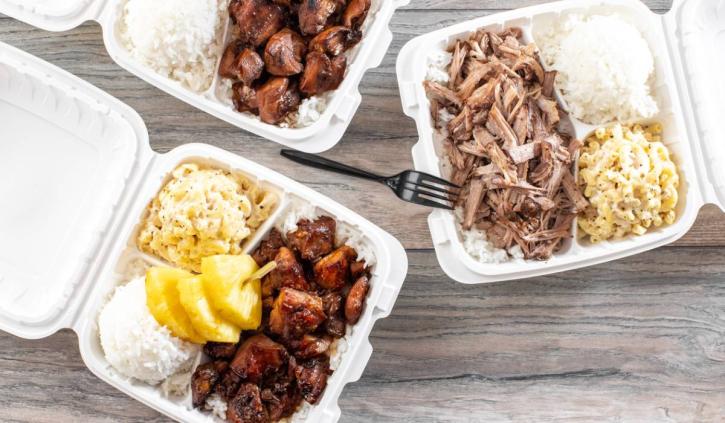
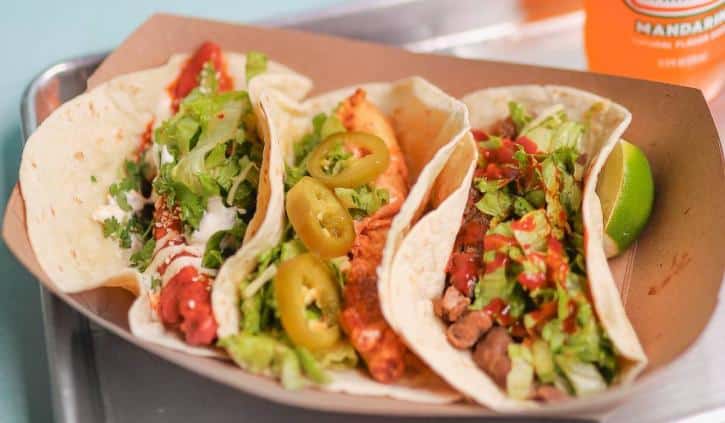

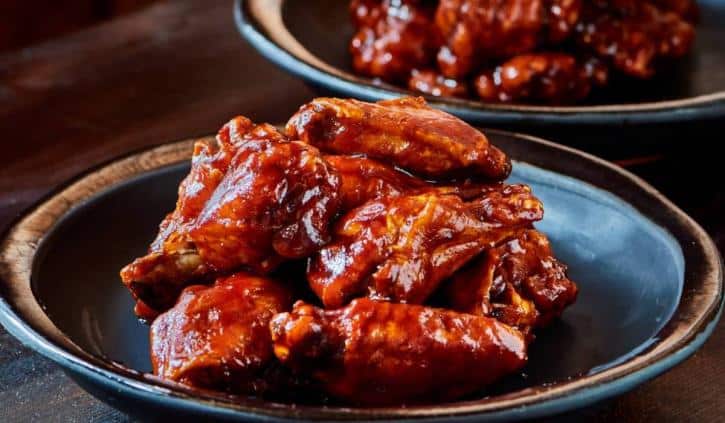
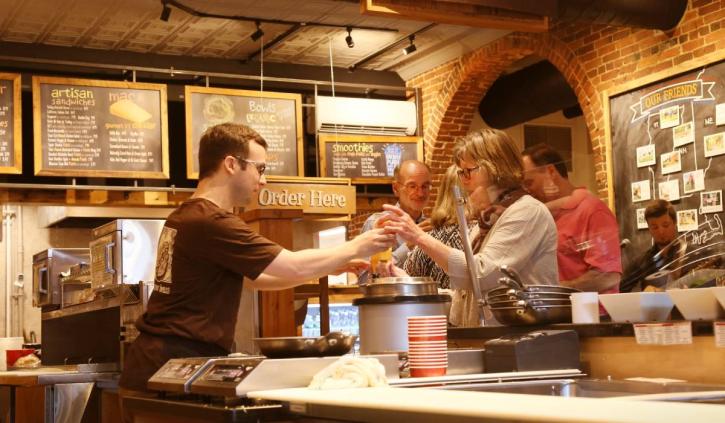
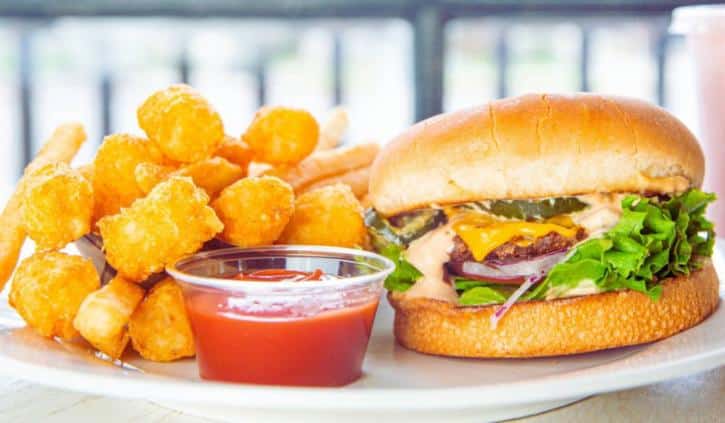
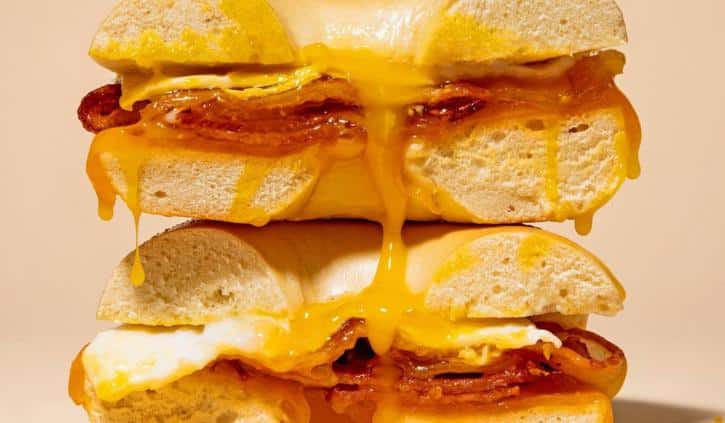
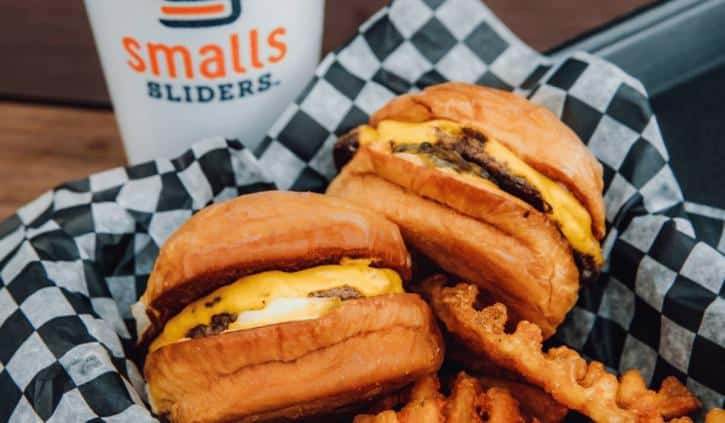
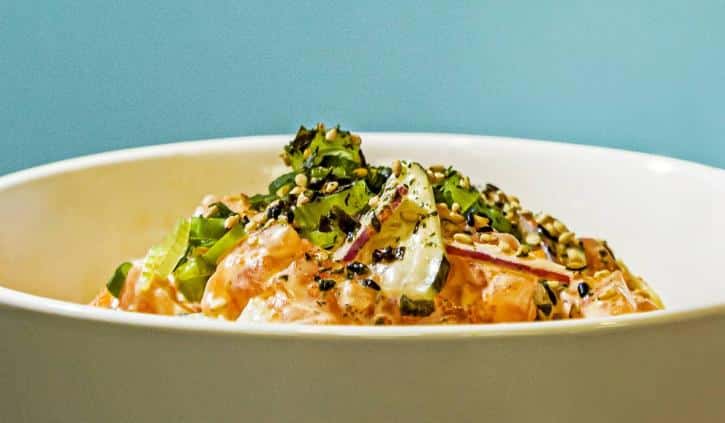
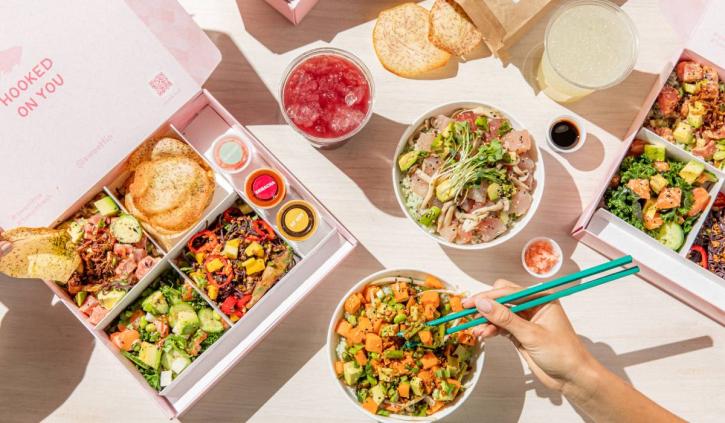
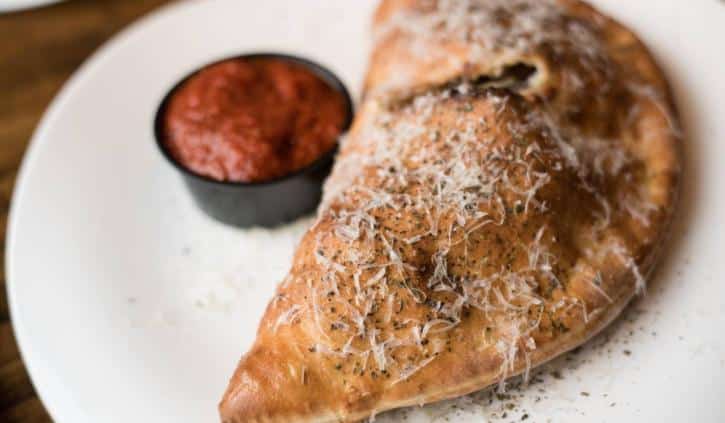
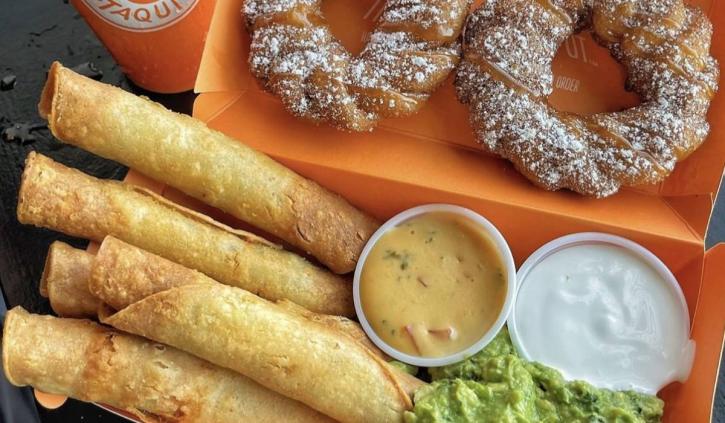
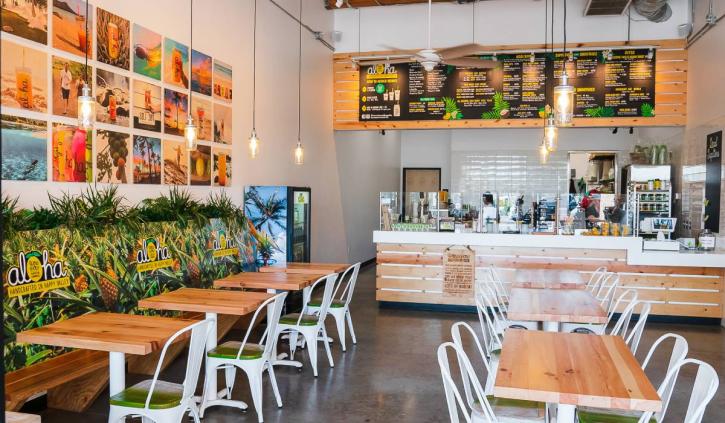
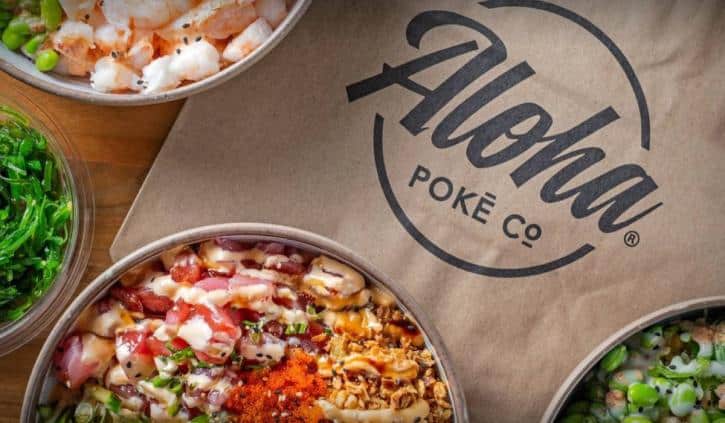
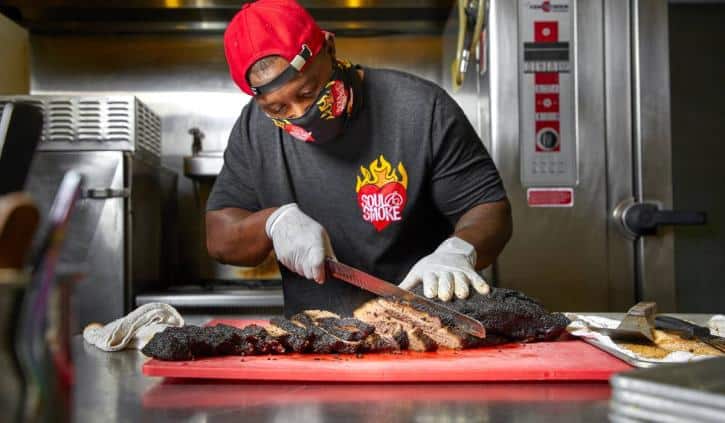
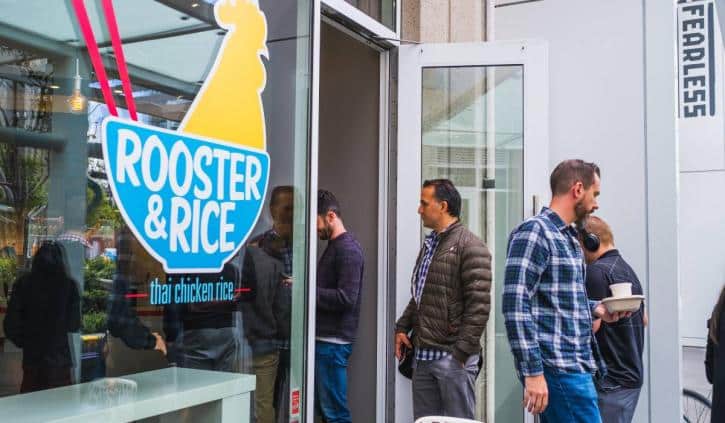
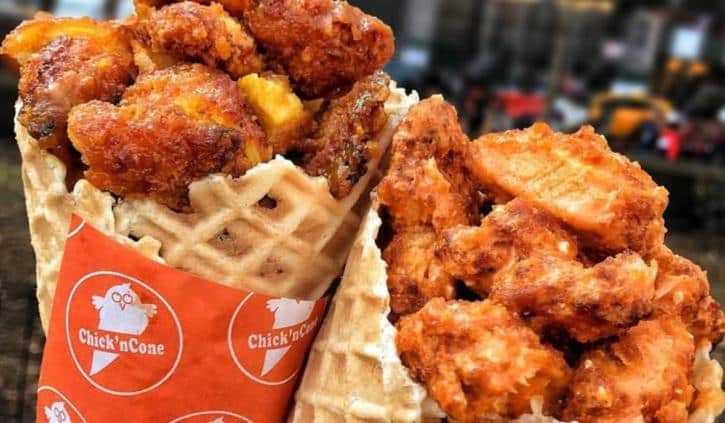
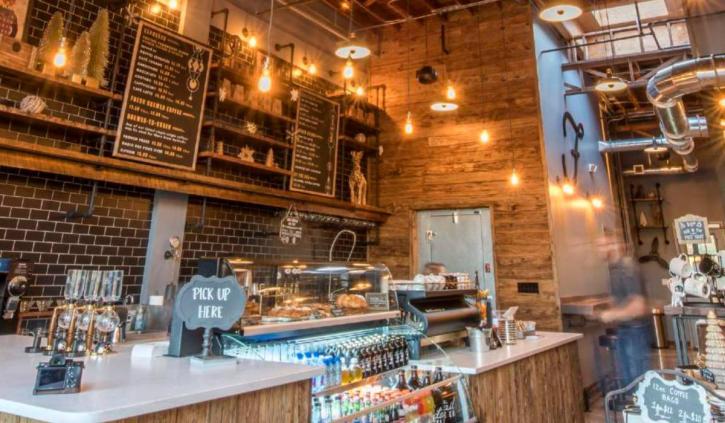
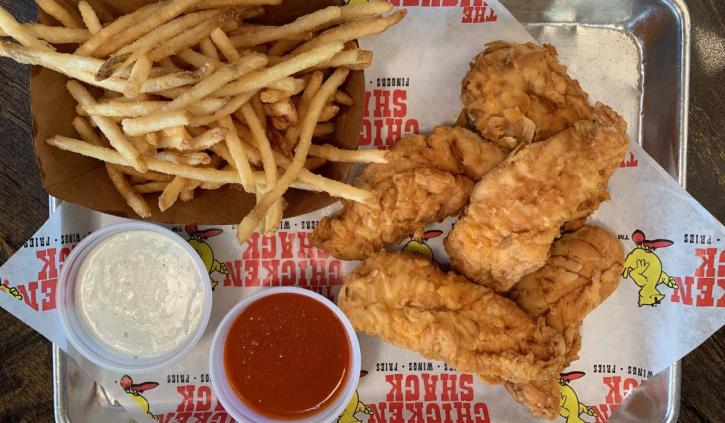

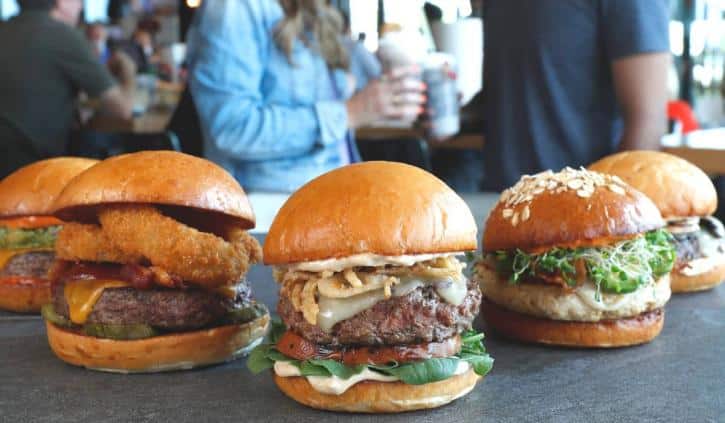

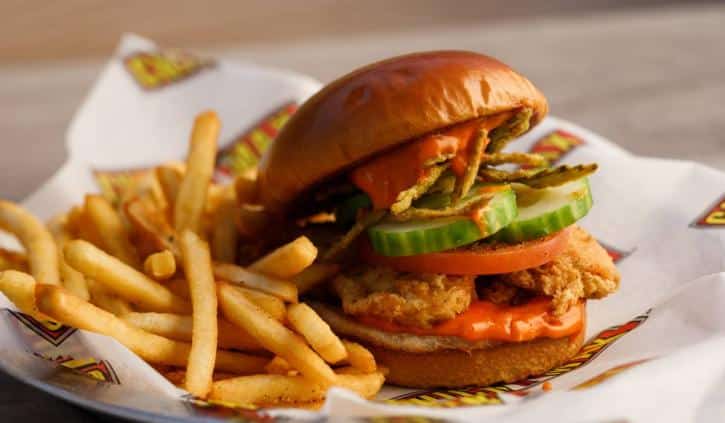

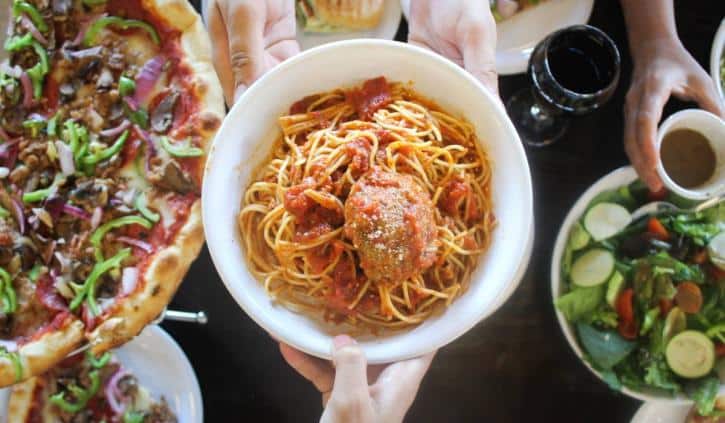
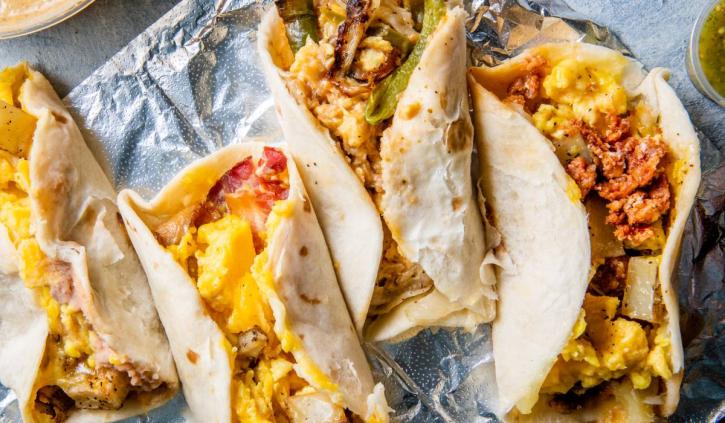
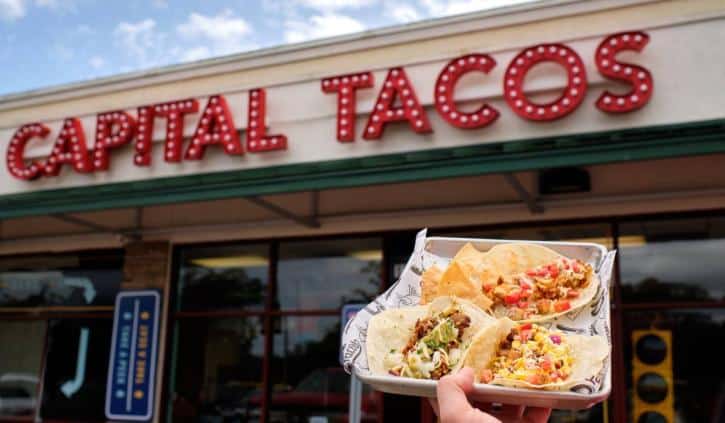
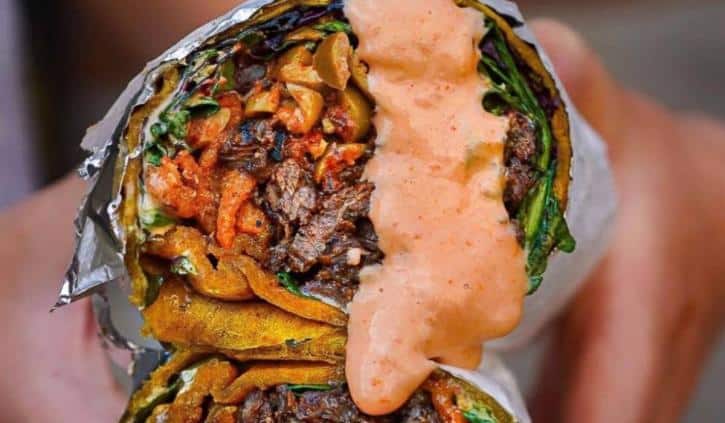
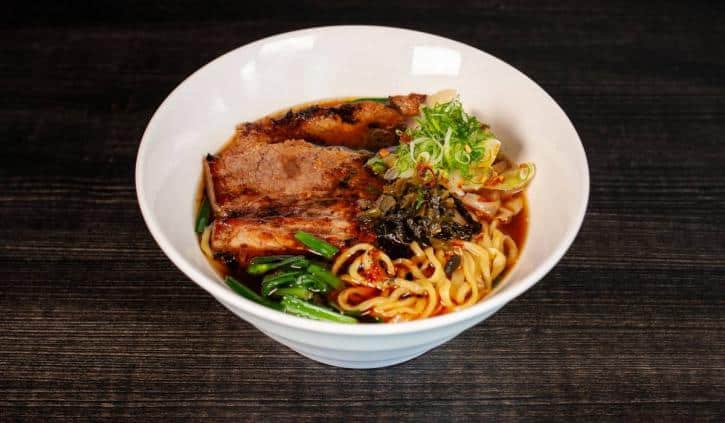
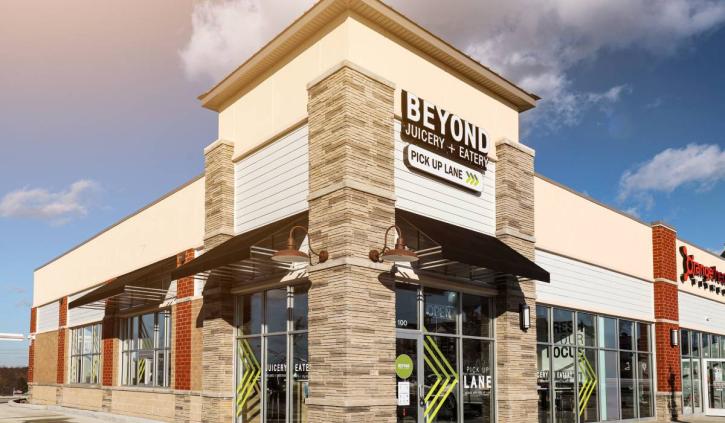
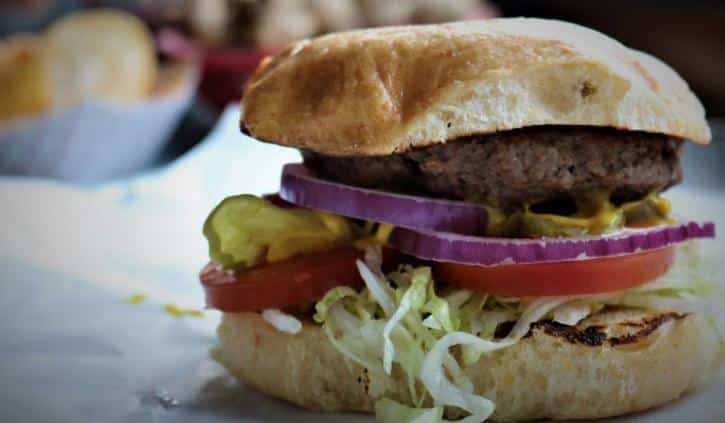
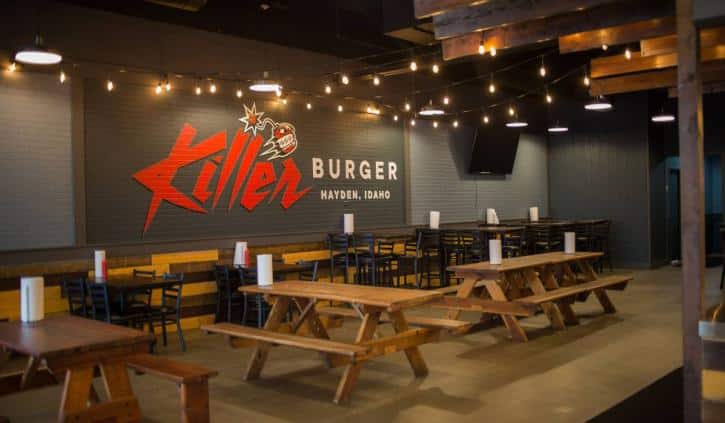
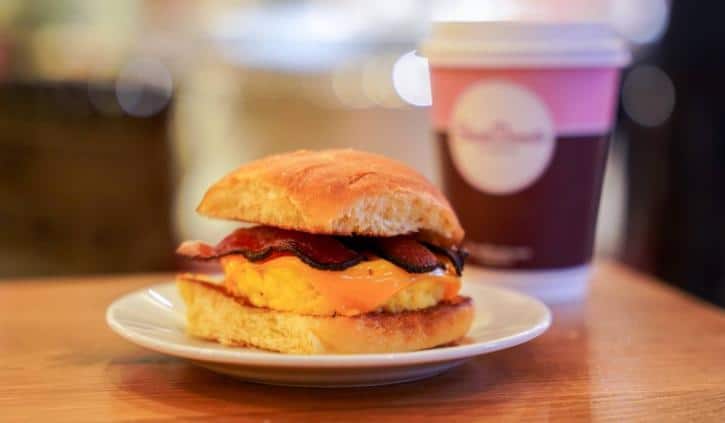
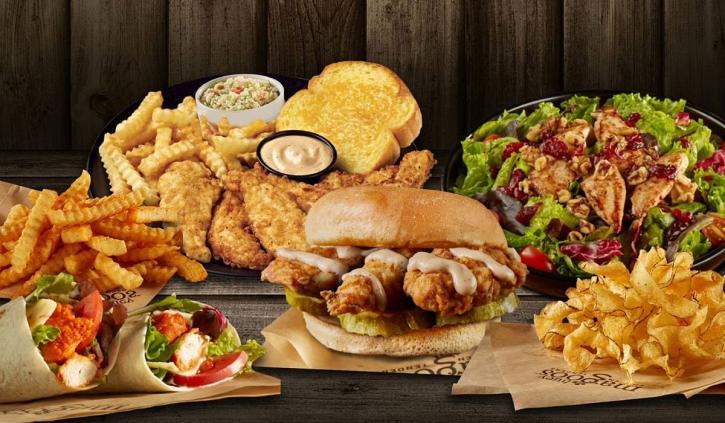
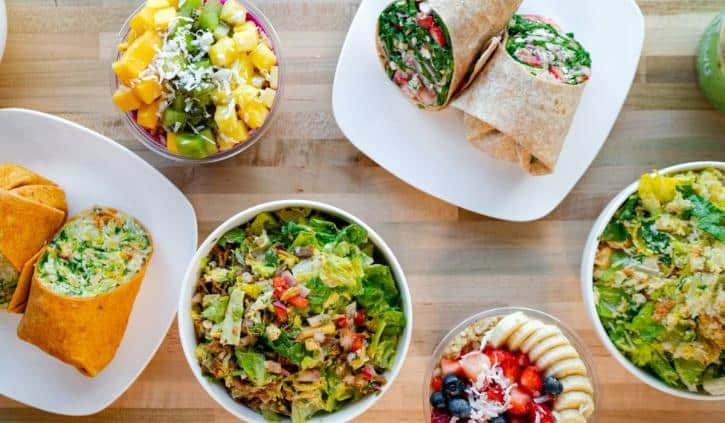
The Big Ticket
The lines between quick service and fast casual have blurred to unprecedented degrees. You can thank the digital revolution of COVID-19 and how convenience became a trademark of brands across foodservice, sit-down restaurants included. Yet one thing that hasn’t vanished— the entrepreneurial nature of the sector’s most innovative category.
Fast casual exploded out of the Great Recession due to its variety and nuance. In some ways, it was the counter-service world’s long-awaited answer to the strength of independent restaurants.
And so arrived brands of every food category and background, all capitalizing on the strengths of both segments, but with designs to grow. COVID didn’t change this. In truth, it might only serve to accelerate it. Fast casuals are emerging more connected and stronger than ever, with tech-centric models and even drive-thrus.
Regardless of what’s changed, though, the unique DNA of these upstarts continues to fuel fast casual’s trajectory. Our annual 40/40 List is now in its sixth iteration, recognizing 40 brands with fewer than 40 locations that we believe can be the next big thing. This group has weathered the storm and is ready to thrive in the most dynamic operating environment on record.
CHECK OUT PAST 40/40 LISTS:
Note: If viewing on desktop, please click the arrow in the picture to see the next slide.
Big Chicken
Units: 10
Headquarters: Las Vegas
Shaquille O’Neal is hardly a restaurant rookie. He’s had a hand in Krispy Kreme and Five Guys franchises, and even a fine-dining spot in L.A. Not to mention, a headline-grabbing 2019 appointment to Papa Johns’ board, which included investing in nine Atlanta locations and helping front one of the industry’s biggest comebacks in recent memory.
But this was different. O’Neal says he frequently received calls to become a chicken franchise over the years that “just didn’t feel right.”
“Chicken was too personal to me,” says the 7-foot-1 NBA Hall of Famer and “Inside the NBA” analyst.
O’Neal’s business partner, Perry Rogers, the CEO and founder of PRP, a sports management and corporate consulting company that’s roster includes O’Neal and Boston Celtics star Jayson Tatum, among others, introduced him to Matt Silverman and Matt Piekarski. “The two Matts,” as O’Neal calls them, joined him on the ground floor of what’s evolved into Big Chicken—a fast casual on the verge of super-sized growth.
Silverman and Piekarski, high-end chefs by practice, spearhead JRS Hospitality, a Las Vegas-based events and catering company known for its parties, private dining, and corporate gatherings. Big Chicken’s other group partner, Authentic Brands Group, is a brand development, marketing, and entertainment company with likeness rights to Sports Illustrated, Elvis Presley, Marilyn Monroe, Forever 2021, Van Heusen, and Aéropostale.
And this year, with Big Chicken ready to scale, O’Neal and his partners brought on Josh Halpern, who’s worked at companies such as FIFCO, Anheuser-Busch, Clorox, and P&G, to lead as CEO. “Now, we’re writing our own story,” O’Neal says.
Again, though, it comes back to the connection. O’Neal says opening a chicken concept was something he’s always swirled around. “So many of my childhood memories revolved around my family’s dinner table, and chicken was on the menu most nights,” he says.
You see the sentiment unfold across Big Chicken’s marketing and menu materials. Items are named after important people in O’Neal’s life, like Lucille’s Mac N’ Cheese (in honor of his mother). There’s a cookie with the circumference of an NBA basketball and O’Neal’s footprints are imprinted by the soda machine. Each store even features a chair clearly built for a person taller than 7 feet.
“Then you have the fact that we really deliver on our promise of ‘Big Flavor, Big Food, and Big Fun,’ with a 5-ounce chicken breast for all our sandwiches and the big cookie that you mentioned,” O’Neal says.
Also, units play the brand’s Facebook Live reality show on a TV in the restaurant. “More subtle, though, is how much the menu is built around my love of this food,” he adds. “I love banana pudding, so the Matts made an ice cream sandwich based on my favorite and our MDE [most dominant ever] is the most basic sandwich because I wanted the chicken, not what was on it, to be the most dominant ever.”
O’Neal shares a story about what’s been a popular draw—the “Charles Barkley” chicken sandwich (mac and cheese, crispy fried onion rings, roasted garlic barbecue aioli ), named after O’Neal’s fellow Hall-of-Famer and broadcast partner. They served the first version to Barkley himself on TNT. “We were going to call it the ‘Barles Charkley,’ and he told us he loved the sandwich and would prefer that we used his real name,” O’Neal says. “It’s a beast of a sandwich with mac-n-cheese and onion straws on top, but it’s a little different … just like Charles.”
Striking a balance between authentic and gimmicky has taken deliberate steps. “We’re doing a good job of aligning the values of the Big Chicken brand with my personal core values: fun and approachable,” O’Neal says. “And the fact that I’m an owner makes it especially authentic. I know it doesn’t need to be all about me, I am there to help the team as needed. I’m not above calling a supplier to help get product or a franchisee that’s on the goal line. I’ve been there for the kickoff of all of our non-traditional venues.” “I never wanted this to be a shrine to me,” he continues. “Just a place for people to get a chicken sandwich that feels like home.”
Since launching in 2018, Big Chicken opened on Carnival Cruise ships and in sporting arenas (recently, Seattle’s new Climate Pledge Arena and The New York Islanders’ UBS Arena ). As of February, there were 10 total locations, including brick-and-mortars in Los Angeles and Las Vegas and through a partnership with Ghost Kitchen Brands in Rochester, New York. Come fall 2021, there were seven restaurants in the pipeline, including a location set to open in the Moody Center in Austin, Texas.
Big Chicken unveiled its strategic franchise program that August. It’s targeting multi-unit investors and cities across the globe.
“Like I said, given my love of fried chicken it needed to be a brand that’s personal to me,” O’Neal says. “As a franchisee, I know how personal their businesses are to them, too. Franchisees invest in the franchisor because they believe in the system and they want good partners. I tell our CEO, Josh, all the time: ‘If you hurt a franchisee, you’re hurting me. Because I was a franchisee long before this.’”
O’Neal believes Big Chicken can move fast. As Rogers told him, “plan your work and then work the plan.”
Big Chicken did a pop-up in the Middle East behind a Formula One race and went on its second cruise ship of late. “It’s a great way to get a lot of people to try out food,” O’Neal says.
And he believes that will carry Big Chicken where it needs to go. With active involvement from O’Neal, it took Piekarski and Silverman six months just to get the breading right. As for beverages, the culinary team used more than 50 gallons of milkshake mix before finding the right Southern vanilla blend. Simply, Big Chicken is far more than an enterprise with a famous name strapped to it.
O’Neal is also not the only NBA star in the food ranks, with former Miami Heat teammates Dwyane Wade and Udonis Haslem striking ghost kitchen partnerships with Florida-based WingHouse Bar & Grill in December, and LeBron James famously serving as a Blaze Pizza investor.
“Plenty of room for all of us and I wish all my old teammates the best,” he says. “But they should know they can’t mess with the MDE.
Son of a Butcher
Units: 2
Headquarters: Dallas
FB Society, formerly Front Burner Restaurants and home to elevated full-service brands like Whiskey Cake and Sixty Vines, created its fast casual to showcase a compact menu with approachable pricing ($3.95 for one slider, $7.99 for two).
But it has the company’s experience-forward style written all over it. An expansive, open-air patio helped customers return from COVID restrictions and the concept, which pulled in $3.6 million last year, doubled the size of its already buzzing, dog-friendly patio. There’s even a custom dog house—a replica of the restaurant—for pups to enjoy. Additionally, it introduced slider sleeves for guests to bring packs of 13 home at a time.
Son of a Butcher, or SoB, opened its first standalone store in December 2020 and worked to bring jobs back to the Dallas market. It operated through FB Society’s Furlough Kitchen, a 501(c)(3) nonprofit created in response to the pandemic, during the Texas freeze to donate slider sleeves.
SoB fed 125 victims of abuse, women and children, who were displaced from their shelter as a result of the winter storms. FB Society says the fast casual appeals to all ages with a nimble social media presence that capitalizes on viral trends and remains ahead of pop culture. For instance, taking part in TikToks and timely memes like Squid Game, Crate Challenge, Dude with Sign, and more. On the growth front, SoB plans to open four new locations in 2022.
Bushfire Kitchen
Units: 5
Headquarters: Southern California
Founded by serial startup entrepreneur Clive Barwin and Chef Brandon Barwin, the gourmet, health-focused brand already has the chops for expansion. Before Bushfire Kitchen, Clive led Melt Gelato & Crepe Café, while Brandon directed operations.
Together, they scaled it beyond 50 stores in the U.S. and Australia. Oliver Barwin (clearly, this is a family run concept), joined Bushfire Kitchen in March 2020 as CEO and guided it through COVID, while also working on future initiatives, such as tech, accounting, and operational efficiency, laying the groundwork for the fast casual’s next phase of expansion.
This included a new website, curbside pickup, direct delivery, a fresh point of sale with Toast, direct online ordering, thirdparty delivery, and digital employee onboarding software, among other back-end improvements. Bushfire Kitchen never uses preservatives, food colorings, flavor enhancers or GMOs, and boasts 20-plus taps of craft beer and wine alongside a full liquor bar in select locations. It also generated 20 percent-plus store-level EBTDA margins last year and plans to open its fifth store, in Eastvale, California, this month. Another is slotted for September 2022. The company says it’s attracting interest from “multiple growth equity firms” looking to invest and scale Bushfire Kitchen coast to coast.
Due’ Cucina Italiana
Units: 3
Headquarters: Seattle
Ideated by two high school friends from Italy in 2014, and then incubated at MIT, Due’ Cucina arrived on the scene four years ago in Seattle. There are presently three units in the area, with two more planned for 2022. Annual revenues are $6.2 million with sales per square foot north of $1,100. The aim is straightforward: make authentic Italian cuisine, particularly fresh pasta, affordable and accessible. The brand focuses on dish presentation and ambiance typical to fine-dining, it says.
Just with tech and standardization features hallmark to fast casual. COVID pushed the brand to create a scalable online experience as well. It launched a mobile app for online ordering, including delivery powered by white-label solution DoorDash Drive, a loyalty program, better packaging (tamper-proof), SMS order-ready notifications, and, overall, a more streamlined pickup experience. In turn, Due’ Cucina stayed open the entirety of the pandemic and kept all of its staff employed, not to mention opening its second and third locations in 2021 as planned. In the coming five years, the chain plans to scale outside of Washington, first regionally and then nationally.
Loro
Units: 3
Headquarters: Austin, Texas
Chef Tyson Cole, of Uchi, and legendary pitmaster Aaron Franklin, of his eponymous Franklin Barbecue, formed an all-star operation in 2018 when they brought Loro to Austin. The James Beard award-winning talents, along with VP of Culinary Jack Yoss, developed an Asian Smokehouse and Bar that’s pushing $9 million per year, per restaurant today. The menu offers fresh takes on Southeast Asian and Japanese-inspired dishes featuring Texas barbecue techniques.
As the brand puts it, a concept that “feels new and fresh yet somehow really familiar at the same time.” Loro deploys a casual and communal service approach, where guests order at the bar and then have the food brought to the table.
“When chefs Aaron Franklin and Tyson Cole came together to create Loro, we had no idea how much guests would love this new culinary experience,” CEO Tony Montero says. “The blending of Texas BBQ and Southeast Asian flavors has been so well received that the decision to grow was pretty clear. We are excited to open Houston Heights in early 2022 and a Loro Addison, just north of Dallas, in fall 2022. We also have our eyes set to expand beyond our region in 2023.”
The outdoor-and-indoor space is modeled after Texas dance halls, with seating arranged to encourage shared experiences. During COVID, Loro leaned into boozy slushees and large-batch cocktails curbside. Inside, it invested in better air filtration and lighting systems that are now standard for all new locations. In 2020, Loro received a major investment from KSL Capital Partners out of Denver, a company that’s backed casual chain Cooper’s Hawk.
This allowed Loro’s restaurant group, Hai Hospitality, to pursue growth, including openings in Old East Dallas, Houston, and a second in Dallas Forth Worth (Addison) in 2022. More are in the works.
Hawaiian Bros
Units: 30
Headquarters: Kansas City, MO
With a mission to spread the “Aloha Spirit,” Hawaiian Bros has built a brand around its namesake state’s signature lunch plates.
The format, which began in the Hawaiian plantations in the late 19th century, features a trio of rice, macaroni salad, and choice of protein, like Luau Pig and the extra spicy Kilauea Chicken. It’s proved a winning formula—even in the face of a pandemic. Annual sales jumped from $5.9 million in 2019 to $20.6 million in 2020. It also tripled its unit count, from nine stores in 2020 to 26 at the close of 2021—this is all before the concept even celebrates its fourth anniversary.
Though growth is concentrated around Texas, Hawaiian Bros is planting flags across the country, including two of the most competitive markets, New York and Chicago. It’s slated to open 25 locations this year and after an equity offering last August raised gross proceeds of $7.5 million, it’s well on track to achieve that goal.
Yumbii
Units: 4
Headquarters: Atlanta
Yumbii is one of those rare brands that in some ways benefited from COVID restrictions. The fast casual, which began as a food truck, leaned into its nimble nature and quickly shifted to takeout while also launching its own delivery program. During the toilet paper shortage, its restaurants even included a complimentary roll with each order. And rather than cutting staff, Yumbii was able to expand its team over the past two years.
The streamlined menu blends Korean barbecue, Mexican cuisine, and classic Southern fare with tacos featuring proteins like Asian rib-eye and Nashville hot fried chicken, as well as nachos with sriracha queso. Its sister concept, The Queso Shop, also started as a food truck and has a similar menu, albeit with more Mexican flavors
The Atlanta-based brand is working to saturate its hometown with 10 units in and around the area, and long-term it plans to expand into other Southeastern cities.
The Red Chickz
Units: 2
Headquarters: Los Angeles
The Nashville hot chicken trend continues to spawn new concepts, but The Red Chickz is positioning itself as a category differentiator. At only two units, it already has plans to open an additional 40 in California, 25 in Texas, and 10 in both Nevada and Arizona within the next year and a half. This growth will be fueled by franchising, which the brand launched last August.
While The Red Chickz does peddle the obligatory sandwich and tenders it also ventures into other carriers and formats, each made to order and customized to one of six levels of heat ranging from cool to inferno. The menu includes hot chicken tacos, waffles, and French toast, as well as Nashville hot shrimp and a chipotle-style sandwich.
Beyond its food offerings, the brand is something of a social media savant, boasting 1 million followers on TikTok and 100,000 on Instagram. The Red Chickz also has its own proprietary app, which it credits with helping stay connected to consumers during the pandemic.
Detroit Wing Company
Units: 12 (eight coming soon)
Headquarters: Royal Oak, MI
When the pandemic began, Detroit Wing Company was better situated than most. The brand already had a well established off-premises program with locations doing 85–90 percent carryout orders. And in 2020, many units managed to double revenues, a trend that continued into the next year.
The experience has led the brand to reconsider its store footprint. Moving forward, all new locations will be off-premises-only with many sporting a drive-up window. The smaller size could help Detroit Wing Company reach its goal of opening 100 units nationwide over the next two years.
As for the wings themselves, the concept has landed on “best of” lists in both local and national media outlets, like Esquire, Men’s Health, and MSNBC. Detroit Wing Company prides itself on preparing menu items from scratch with fresh, never-frozen chicken. That said, it’s building a commissary to prepare proprietary spice blends and house-made sauces, thus streamlining throughput.
The Works Café
Units: 9
Headquarters: Keene, NH
After 30-plus years in operation, The Works Café remains true to its original mission of serving wholesome food, but it’s also ready to enter a new era of growth and evolution.
The New England concept, which is still led by founder Richard French, eschews in-the-moment trends in favor of quality café fare by partnering with local farms and sustainably-minded producers. The Works also recycles or composts nearly all waste across its system.
Investments in online ordering and delivery in 2019 helped prepare the brand for the following year, and digital transactions now account for about a third of sales. During the pandemic, it offered curbside service and in-house delivery while also doubling its outside seating capacity. The Works has even dipped its toe into ghost kitchens by partnering with corporations to serve as their virtual cafeterias.
With nine locations across five states, The Works aims to open about a dozen more units, starting with its first New York outpost as well as additional units in New Hampshire and Massachusetts. It’s also launching AI capabilities within its technology platform and designing drive-thrus.
Honeybee Burger
Units: 4
Headquarters: Los Angeles
Plant-based Honeybee Burger opened in mid-2019 with the mission of saving the planet with every sale. Wall Street veteran Adam Weiss decided to fuel expansion through regulated crowdfunding, and the brand has since become the most successful crowdfunded restaurant on the Start Engine platform.
The emerging chain is developing stores in Southern California and New York and also looking to enter Miami and Austin via a growth strategy that involves brick and mortar, ghost kitchens, virtual brands, and eventually franchising. To elevate awareness, the chain signed an NIL deal with Tyger Campbell and partnered with DJ Dani Thorne to launch virtual brand PBAF.
H&H Bagels
Units: 7
Headquarters: New York City
Since CEO Jay Rushin joined H&H Bagels in 2014, he has tried to incorporate a more widespread approach. In 2017, the concept launched a national wholesale business at retail outlets across the country. Amid COVID, H&H witnessed a 500 percent bump in nationwide shipping and a 400 percent rise in its global wholesale business.
To expand its presence even further, H&H announced the first franchising program in its 50-year-history. Rushin said the response from potential operators has been strong, and that franchise openings will begin “in earnest” in 2022.
Smalls Sliders
Units: 2
Headquarters: Baton Rouge, LA
Although Smalls Sliders operates two units in the Baton Rouge area, the chain prefers to “act like 1,000” when it comes to implementing processes and programs, CMO Katherine LeBlanc says.
That includes the chain’s first franchising program, which kicked off in July 2021. By October, Smalls had 19 locations in the pipeline, with five scheduled to debut in the first half of 2022. The growth strategy builds off a platform established by co-founders Jacob Dugas and Brandon Landry and backed by Drew Brees, founder and investor, respectively, of casual-dining brand Walk-On’s. Joe Lewis, CEO and veteran franchise executive and Scott Fargason, LSU professor are also part of the ownership group.
“What we’re doing next is really just taking the amazing foundation that has been set and we’re shooting for the blue skies ahead of us, from a branding perspective, from communicating our ‘why,’ and then infusing our ‘why’ into our guest experience,” LeBlanc says.
LeBlanc attributes Smalls’ organic growth trajectory to its “keep it simple,” mantra, which applies to both the menu and building design. Customers are able to choose among four combos, including one, two, three, or four sliders—made with proprietary buns and sauces—paired with fries and a drink, and other special beverages like milkshakes and Icees. For those interested in bigger orders, the chain offers party packs of 25, 50, and 100 sliders.
Smalls sells the streamlined menu out of a roughly 1,000-square-foot shipping container that’s equipped with a walk-up window and drive-thru. Instead of a dining room, the brand offers a small outdoor patio with picnic tables, turf, and string lights. LeBlanc says the unique design is a way for Smalls to “make a brand statement immediately” and “increase the brand recognition in a really fast way.”
CEO Joe Lewis also notes because of the slimmer footprint, the restaurant requires half or possibly one-third of the labor typically seen in a quick-service restaurant. And from an operating standpoint, routine costs like utilities and dumpster requirements are lower.
“The model has now done extremely well,” Lewis says. “We’re very, very satisfied with the food quality, the reception we’re getting from our customer base, and then also the unit economics that are there to be able to support franchising and make sure that our franchise owners open up and do very well with the concept.”
Lewis adds franchising requires a two-phase strategy that starts with solidifying training, marketing, technology, and operations. The next step is execution. The restaurant will first focus on Beaumont, Houston, and Houma/Thibodeaux, in Texas; Hattiesburg and Jackson in Mississippi; and New Orleans, Shreveport, Alexandria, Lake Charles, Lafayette, and Monroe in Louisiana.
As those concentric markets fill, Smalls will then set its sights on national expansion.
“We want to make sure that we get that first phase up, we build a great foundation, and then once we do that then make sure our systems will scale to multiple units,” Lewis says. “We know they will, but we need to do the work to be able to accomplish that. When we get that accomplished then we’ll extend our reach.”
Poke Me
Units: 5
Headquarters: LA
Poke Me is run by a family with more than 40 years of experience in the restaurant industry. The chain has grown to five locations in six years, and claims to be one of the first original poke concepts before the cuisine became a national trend. Customers are able to select a certain-sized bowl or poke burrito, and choose from the chain’s 10 house-made sauces, including Eel Sauce, Truffle Ponzu, Spicy Mayo, and Yuzu Wasabi.
Sweetfin
Units: 15
Headquarters: West Hollywood, CA
Sweetfin’s off-premises business was strong entering 2020, and COVID bolstered sales even further. The chain invested in a tech stack that allowed for a fully integrated digital ordering experience among desktop, mobile, app, and a loyalty program. With the addition of kiosk ordering inside dining rooms, Sweetfin surpassed pre-pandemic sales despite having limitations with operations. Since the pandemic began, the brand has opened seven new stores.
Going forward, the fast casual aims to triple its footprint in the next 30 months with a mixture of company-run units and ghost kitchens throughout Southern California and new markets outside the Golden State.
Sauce on the Side
Units: 9
Headquarters: St. Louis
Sauce on the Side, which serves handcrafted calzones and salads, has gained a cult-like following over the years and was named The Cheesiest Restaurant in America by The Travel Channel’s “Food Paradise.”
With multiple dayparts, several revenue channels (dine-in, takeout, self-delivery, third-party delivery, and catering), and a low-cost, flexible buildout for end-cap development and second-generation conversions, Sauce on the Side aims to reach 50 restaurants in the Midwest by 2026. The chain recently converted to a cloud-based tech stack, which will pave the way for more operational efficiency and guest convenience platforms.
Roll-Em-Up Taquitos
Units: 5
Headquarters: Irvine, California
Roll-Em-Up Taquitos prides itself as the first and only taquito- focused multi-unit concept in the world. The company launched franchising in May, and finished 2021 with more than 400 restaurants in its franchise development pipeline.
And that’s only the beginning; the goal in 2022 is to sell 500 units. In preparation of this strategy, the chain implemented a tech stack designed to elevate franchise partners, including deals with Restaurant365, Olo, Punchh, Franconnect, and SMG. Because of its pivot to online ordering and order-ahead technology, Roll-Em-Up has experienced month-over-month increases in same-store sales and opened three stores since COVID began.
Wow Wow Hawaiian Lemonade
Units: 12
Headquarters: Scottsdale, AZ
Wow Wow Hawaiian Lemonade, with roughly a dozen stores across the U.S., expects to double in size by the end of the year. Multiple openings are scheduled for Dallas, San Antonio, New Mexico, Northern California, and Arizona. The growth is supported by a record-breaking 2021; in the first nine months of last year, the fast casual signed 40 agreements, the largest number of deals the chain has completed in a calendar year since franchising began in 2017.
Wow Wow is owned by John Choi and Klaus Grimm of C&G Franchise Development, which purchased the brand in 2019, moved its headquarters to Scottsdale, Arizona, and hired existing franchisee Tim Weiderhoft as CEO.
Aloha Poke
Units: 17
Headquarters: Chicago
Well before COVID hit the U.S., Aloha Poke began pivoting toward leaner operational costs and procedures. Without the need for ovens, fryers, and other large-sized back-of-house equipment, the chain moved toward smaller buildouts. Over time, the brand accommodated customers with digital ordering through a new app, curbside pickup, and third-party delivery, including the launch of a ghost kitchen.
In 2021, Aloha opened the first of 11 stores in Houston, announced plans to open in Atlanta, and signed a deal to debut in Charlotte. In 2022, Aloha is targeting 20 openings in eight states, and aims to solidify another 30 development deals.
Soul & Smoke
Units: 3
Headquarters: Evanston, IL
Barbecue concept Soul & Smoke launched in 2015 as a casual arm of Feast & Imbibe, a full-service catering company based in Chicagoland. During COVID however, meaningful changes were made within the catering business, and Soul & Smoke grew into a collection of ghost kitchens and a new food truck.
The brand plans to debut a dining room at its Evanston, Illinois, location after opening a patio space last summer, and open another brick-and-mortar restaurant in Avondale, Illinois. Soul & Smoke is looking to expand its retail offerings, as well, by offering its signature spice rubs and barbecue sauce via purchase with any meal and through local and national shipping.
Rooster & Rice
Units: 10
Headquarters: San Francisco
Bryan Lew and Tommy Charoen oversaw Indonesian restaurant Indo in Palo Alto, California. A friend, who sold hot dogs in the Marina District of San Francisco, approached the pair about opening an Asian concept. And the notion got Lew and Charoen thinking. Could they introduce a one-item dish into a quick-service model?
That’s how Rooster & Rice was born six years ago. Its menu is simple, with a chicken dish known as khao man gai in Thai, finding a home in various formats. It started as a pop-up one weekend and quickly gained traction, ending up in the downtown tech area of San Francisco. The brand is now backed by a partnership with Aroi Hospitality Group, a restaurant group that includes two of the founders of third-party delivery app Caviar, and has grown into a 10-unit chain.
Lew says throughout Rooster & Rice’s journey, the greatest challenge was translating a high-quality product into a counter-service box, which only allots a few minutes for
“I think that that is still probably the toughest thing to translate is just getting people to buy in on the value of the quality of the product,” Lew says. “I think you can still get a fun experience from going to a quick-serve restaurant.”
Throughout the pandemic, Rooster & Rice benefited from the fact it’s always been primarily takeout. In the Financial District, customers were used to taking Rooster & Rice meals back to the office, and sales didn’t stop even when many buildings closed.
“It didn’t skip a beat during COVID,” Lew says.
Rooster & Rice, naturally, did have to adjust to taking on more deliveries via third-party apps. This meant staff had to cross-train and multi-task more than ever. Still, the brand is positioned to look at expansion opportunities, starting in Texas this spring. Lew says Rooster & Rice aims to add on four to five stores by the end of 2022. Franchising is also in the brand’s future, as Rooster & Rice solidified its model over the past year and a half. Now almost entirely corporate owned, Rooster & Rice looks for the same passion Lew found in his first franchisees, two friends that would not leave him alone about the opportunity for what felt like two years, he jokes.
Moving forward, Lew views Rooster & Rice’s mis- sion as bringing Asian street food into the mainstream. Ramen and boba have made it, and now it’s time for Rooster & Rice’s khao man gai to find the spotlight. He hopes to make it to 20–25 corporate stores and 15–20 franchise operators, and becoming a multi-unit, international concept.
Rooster & Rice lends itself to growth as a concept that is easy to prepare no matter the kitchen.
“It’s a healthy product,” Lew says. “It’s comforting, easy to understand, easy to grasp, easy to prepare at its core.”
Chick’nCone
Units: 34
Headquartered: Easton, PA
Chick’nCone has set out to reimagine the traditional comfort food of chicken and waffles in a scalable menu. The company developed a budding empire under a small footprint and ultimately showed it has what it takes to survive through a pandemic.
Chick’nCone opened 26 new locations over the course of COVID and is now actively seeking multi-unit franchise partners to target growth in Columbia, South Carolina; Philadelphia; and St. Louis. The brand aims to have at least 50 locations open by the end of 2022.
Foxtail Coffee Company
Units: 35
Headquarters: Orlando, FL
Foxtail Coffee Company has a story that goes all the way back to its founders’ kindergarten class. Alex Tchekmeian and Iain Yeakle met in a South Florida elementary school, never knowing their lifelong friendship would eventually lead to the creation of Foxtail Coffee Company in 2016. Now, the brand is on a mission to bring its fresh roasted coffee outside of Florida in a strategy of growth that is both aggressive and responsible, the brand says.
The Chicken Shack
Units: 28
Headquarters: Las Vegas
When COVID hit, The Chicken Shack kept buzzing. In fact, it saw an increase in sales once it pivoted to kiosks and online ordering. Stores using this new technology have 30–50 percent of gross sales conducted digitally, which requires no cashiers. Altogether, The Chicken Shack saved on labor while increasing ticket averages by 20 percent.
The Chicken Shack plans to unveil a double drive-thru concept to increase revenues while it upgrades technology at existing stores. Despite its name, plant-based offerings also will likely have a place as the fast casual targets underserved markets and expands into the West Coast.
Miller’s Famous Sandwiches
Units: 2
Headquarters: Providence, RI
The pandemic wasn’t the first obstacle Miller’s Famous Sandwiches met in its nearly 50-year history. Miller’s survived through multiple economic recessions and downturns, and COVID didn’t prove any different. Miller’s same-store sales were actually higher in 2020 than 2019.
The East Providence, Rhode Island, staple offers roast beef sandwiches, French dips, Reubens and more as a third-generation family owned restaurant business. Miller’s Famous Sandwiches, which so far says it has been able to stay ahead of global staffing challenges, recently announced its franchising opportunity and plans to have five to seven restaurants open in the next few years, spanning the Northeast down to Florida.
Grub Burger Bar
Units: 19
Headquarters: Bryan, Texas
Grub Burger Bar leads with an expansive menu both in terms of burgers, shakes, chicken, and salads as well as in alcoholic beverages with a full dine-in bar featuring inventive cocktails. In all, guests who choose to dine at the bar generate 17 percent of total sales.
Emerging from the pandemic, Grub Burger Bar is primed for growth. To-go sales remain at 30 percent of mix, more than double pre-COVID rates. The brand also launched its own virtual brand, Chik Chik Boom, which will be available for delivery out of all 19 Grub locations in Texas, Georgia, Louisiana, and Florida.
Grub Burger Bar plans to launch additional virtual concepts by the end of 2022 and is currently pursuing expansion into new markets where it will aim for five new locations by mid-2023.
Bread Zeppelin
Units: 7
Headquarters: Dallas
A Zeppelin is not a salad, and it’s not a sandwich—it’s an entirely new format: a hollowed fresh- baked artisan baguette filled with the customers’ choice of chopped salad. Bread Zeppelin created this product as an alternative to the often-messy wrap and in hopes of making salad eating on-the-go easier.
Since 2020, Bread Zeppelin launched its own app, and digital orders more than tripled com- pared to before the pandemic, now representing more than 40 percent of sales. Compared to the same period in 2019, Bread Zeppelin’s sales soared 18 percent. Moving into the future, Bread Zeppelin also unveiled a new product, Grain Bowls, and has opened its first franchise restaurant in Houston.
Chick N Max
Units: 3
Headquarters: Wichita, KS
Max Sheets was at the floor of Ted’s Montana Grill when Ted Turner and George McKerrow pioneered the concept. It’s what ultimately led Sheets to found Chick N Max, a chain that aims to be the home of the “better chicken sandwich.”
Featuring 10 unique flavors of chef-created options, Chick N Max thrived through the entirety of the pandemic. The company created a “Community Support Menu” to make food more accessible and provided free meals to frontline workers and first responders, among others. In 2021, Chick N Max sales grew 35 percent over 2020 and 52 percent versus 2019. The chicken chain intends to double its footprint by the end of 2022, opening as many as five new restaurants each year thereafter.
Balance Grille
Units: 4
Headquarters: Toledo, Ohio
In addition to its four locations, Balance Grille developed an 8,000-square foot urban aquaponic farming operation, which provides year-round produce for restaurants.
Balance puts the focus on clean eating and menu transparency in an Asian fusion fast-casual concept that serves bowls, tacos, snacks, and bubble tea. The entire kitchen, from the production line to the walk-in cooler, is encased in glass, meaning customers see every step of the process, with no freezers, toasters, or microwaves.
Technology guided Balance in its staffing practices as well. Employees can use their phones for training, to track work, scheduling, to switch shifts, and more. Throughout the pandemic, Balance also increased user count on its loyalty app from around 67,000 to more than 105,000 users. Additionally, the brand invested in a curbside text check-in system and added a Marketplace to its app menu, which enables the sale of groceries from small local producers.
In 2022, Balance plans to launch its franchise program, overall targeting 30–40 locations over the next three years. Balance, so far, has circled Florida, Colorado, Texas, Georgia, North Carolina, and South Carolina for new stores.
Mici Handcrafted Italian
Units: 7
Headquarters: Denver
Since opening 17 years ago, Mici has served family recipe pastas, artisan pizzas, salads, and more. Now, the brand is ready to grow nationally, having signed a 30-unit deal to expand into the Phoenix market and begin its franchising program.
The family-owned Italian brand increased sales 10 percent and retained all employees during COVID. It led with innovation as well, launching Kids’ Pizza Kits and Family Meal Bundles for off-premises and delivering beer and wine.
Mici also implemented an optimized carryout station to expedite customer pickups and opened its first delivery and carryout model store as a beta test for future small footprint locations in franchise markets.
Looking ahead, Mici plans to open 30 corporate stores over the next five years in Colorado. On the franchise side, the company intends to open 150 franchise restaurants with multi-unit operators by 2027, expanding to three to five markets annually for the next six years.
King David Tacos
Units: 4 (three carts, one brick and mortar)
Headquarters: New York City
Created by Austin, Texas, native Liz Solomon Dwyer, King David Tacos is bringing an authentic Texas flavor to the Big Apple. Inspired by the food of her native state, Solomon Dwyer saw an opportunity to capitalize on a market hungry for new flavors.
After moving to New York in 2006, Solomon Dwyer says she realized NYC was missing something. While there were plenty of bagels, there were no breakfast tacos.
“That seemed to be kind of a head scratcher because they’re delicious,” she says. “From my perspective, I thought breakfast tacos were the perfect food for the city because they lend themselves so well to grab-and-go convenience. They also hit on so many dietary preferences and needs, especially crunched meal times.”
Solomon Dwyer says she knew King David would be successful in the land of bagels because the easy-to-eat breakfast item fit the ethos of New York City.
“New Yorkers are always looking for the balance of feel- ing good and being super productive,” she says. “But they also want to have something that is delicious and indulgent. The breakfast taco has the perfect mix of being craveable and functional, which kind of epitomizes the New York life- style. We’re all about efficiency, all about convenience.”
The name King David comes from Solomon Dwyer’s father, who she describes as “a big guy with a big personality.” His friends called him “King David.”
“There’s a lot of King David and a lot of King Solomon up here, but there was no King David Tacos,” she says.
The brand focuses on Austin-style tacos, which Solomon Dwyer says can mean a few things depending on whom you ask. For her, the most important aspect of the breakfast tacos that make them Austin-style is the tortilla. King David uses a vegan, flour tortilla that is smaller than your average flour tortilla used for burritos. She says the vegetable oil used in their tortillas is what makes it vegan and also gives the brand’s tacos a fluffy texture. Tortillas are shipped in from Austin because they can’t find the exact product they need in NYC.
The ingredients are also layered in the tacos, which she says is a necessary component of an Austin-style taco, compared to other breakfast tacos, which can sometimes mix all the ingredients into a scramble.
King David Tacos currently operates out of three cart locations and one brick- and-mortar unit throughout the city. The tacos can also be found at more than 50 retail locations, including coffee shops and Whole Foods. Solomon Dwyer says the brand plans on focusing its expansion efforts on more retail partnerships over the next three-to-five years. Growth will be mainly focused in the region with sights set on New Jersey and Connecticut as potential new markets.
Recently, the brand partnered with Blank Street, a local coffee company, to launch a fleet of sustainable breakfast taco and coffee carts around the city. The carts will be fully battery powered with zero emissions.
Capital Tacos
Units: 5
Headquarters: Tampa, FL
Awarded a three-star review from the Tampa Bay Times, Capital Tacos has reeled in praise ever since its 2013 founding as a corner restaurant—no sign or marketing budget—in Land O’ Lakes, Florida. The brand spent recent years developing its menu (husk street corn, hand-spiced crispy fries) and developing a concept ready to scale via franchising. The latter program is set to launch in early 2022, with the coming two calendars primed for growth, executives say. It will initially target Southeast franchisees before looking at nationwide opportunities.
The primary focus will center on an owner-operator model and robust employee-to-franchisee career path. Additionally, Capital Tacos uses 100 percent second-generation spaces rather than new development—an approach the company says is better for the environment and helps keep initial investment costs down. “In turn, this makes for an attractive and achievable opportunity to many potential franchisees interested in bringing our award-winning offering to their local communities,” the brand says.
Alongside franchise growth, Capital Tacos will expand through corporate locations in the Tampa Bay market as well.
Wolfnights
Units: 4
Headquarters: New York City
Gourmet wraps and bowls are the focus of this New York brand. Wolfnights specializes in using ingredients you wouldn’t necessarily expect to find wrapped up in a fast casual. Lamb Bacon, date and pumpkin seed wraps, and green papaya slaw, for instance.
All of the items on the menu are made in- house, including doughs such as ginger, fig, chestnut, and chili. While some concepts scaled back during COVID, Wolfnights went from two to four units, hired professional market- ing services, and improved its tech stack. With projected sales of $7 million this year, the concept projects further growth in the New York area.
Ani Ramen House
Units: 8
Headquarters: Montclair, NJ
“Ani” translates to “eldest brother” in English from Japanese and the brand says that sense of family and hospitality extends across the concept, from food to décor. Ani Ramen House features ramen and traditional Japanese izakaya plates, which are smaller offerings meant to be shared.
One added example––the brand donated 3,500 ramen meal kits in 24 hours during the pandemic, which helped feed over 15,000 people. In the weeks that followed, Ani Ramen organized a nonprofit restaurant company, #BeAwesomeFeedSomebody, where it donated meals to first responders, as well as serve food at a discounted price to the public.
During the time that #BAFS was operational, the brand donated more than 30,000 meals. Moving forward, Ani Ramen expects to grow in New Jersey, New York City, and Westchester, New York. It will open fast-casual and full-service locations.
Beyond Juicery + Eatery
Units: 39
Headquarters: Madison Heights, MI
Founded in 2005 by husband and wife Mijo Alanis and Pam Vivo, the health-focused chain serves options like made-to-order juices, smoothies, wraps, smoothie bowls, and salads.
The brand started franchising in 2019 and has experienced considerable growth since. While its growth strategy is mainly centered in Michigan and Ohio, Beyond Juicery + Eatery also plans on targeting other Midwestern states as well as Florida. The chain was able to double its number of units in 2020, with some locations even turning into grocery hubs during the pandemic to provide communities with easy access to essential goods. Also, it streamlined the production of a variety of food kits for those stuck at home and sold nearly 10,000 boxes across the system.
Grumps Burgers
Units: 6
Headquarters: Granbury, TX
Grumps sees itself as the “Texas Roadhouse of burger joints,” a no-frills restaurant built on “cow- boys and handshakes.” This coming year will be the brand’s 20th anniversary, and to celebrate, Grumps is tossing its hat into the franchising ring. The original store, which sat 16 people and generated $600 on a busy day, still stands today and seats roughly 200, churning out $600 hours regularly.
Grumps keeps it simple with a focus on quality and a “Texacana” theme. The brand positioned its six stores in vastly different markets, yet has seen comparable year-over-year growth regardless of where it lands. When mandates came down to close stores, Grumps had just opened its fifth location and had 30 days of operating capital.
It quickly shifted and added curbside, which soon generated 75 percent of the chain’s normal revenue. Before COVID, to-go represented just 9 percent of sales. Today, curbside produces 25 percent of sales and cash reserves have growth to 14 months. Looking ahead, Grumps will open more corporate units as well as franchises.
Killer Burger
Units: 18
Headquarters: Portland, OR
In the crowded fast casual arena of better-burger brands, Killer Burger leans on what it calls “Burger Tech” to stand out. It’s a methodology that anchors everything from how patties are cooked to which ingredients are paired together and even how burgers are built and presented to guests. In the past 19 months, the chain anchored that mission with logistical tech as well.
It instituted new online ordering systems, expanded relationships with third-party delivery services, created special marketing programs, installed additional sanitation stations, and developed efficient curbside pickup processes to accommodate new social distancing requirements. Meanwhile, all existing franchisees signed on for additional units (of the 18 stores, 10 are corporate, six franchises, and two non-traditional). Killer Burger is also forging ahead with additional liquidity and a fleshed-out board of directors that boasts experienced industry execs.
With new talent and strategic investments, the chain has its sights on aggressive franchise growth with multi-unit operators throughout Pacific Northwest, Mountain West, and select Midwest markets.
Stan’s Donuts & Coffee
Units: 15
Headquarters: Chicago
In less than eight years, Stan’s opened 15 units in Chicago and its surrounding suburbs. The brand focuses on high- quality ingredients for donuts, which means using the best butter, eggs, vanilla, and chocolate available. During the pandemic, it was able to partner with Kroger and Costco to develop a wholesale program, which allowed Stan’s to keep the lights on and the coffee brewing.
It also placed added focus on drive-thru. Stan’s opened its second with the feature in December 2020 and expects to continue doing so going forward. Two or three units should open in 2022 and the company hopes to venture outside of Illinois the following year. As that growth unfolds, it will also push the wholesale program as it partners with large groups to gain national visibility.
Huey Magoo’s
Units: 20
Headquarters: Orlando, FL
Huey Magoo’s tagline, the “Filet Mignon of Chicken,” has carried it throughout the Southeast, with multiple stores in Central and South Florida, Jacksonville; Georgia; Mississippi; and, soon, Tampa, Tennessee, the Carolinas, Alabama, Ohio, and more. Led by “chicken expert” Andy Howard, a former Wingstop vet, and founders Matt Armstrong and Thad Hudgens, the brand recently opened its milestone 20th store and has sold 200 franchises company-wide. Year-over-year same-store sales are up more than 22 percent and the company hit $30 million in systemwide sales in 2021.
Each Huey Magoo’s chicken tender is made all-natural, with no antibiotics, hormones, steroids, or preservatives. Initially during COVID, the company implemented several marketing initiatives, including special deals on family meals, catering, and gift cards. It also added health, safety, and sanitization practices company-wide, and tacked on curbside pickup at certain locations.
Bahia Bowls Açaí Café
Units: 11
Headquarters: Estero, FL
Started in 2017 by college sophomore Ben Casey and his business partner, Van Hatziyianis, Bahia Bowls Acai Café offers customers acai bowls, smoothies, salads, wraps, avocado toast, and coffee. It focuses on healthy food at a lower price point than competitors. Since signing the first franchise agreement in the summer of 2019, the brand opened a second corporate store and signed seven more franchise agreements (three during the pandemic).
With current operators looking to launch second and third locations, the fast casual doesn’t plan on slowing down. By the end of 2022, Bahia hopes to have 25 units. The long-term plan is to reach 500 venues across America. Recent success has fueled that optimism.
Since August of 2020, following an initial plunge in sales, flagship locations have generated business 40 percent higher every month, year-over-year. A significant amount of sales now flow through third-party delivery channels as well as an online ordering, and the company believes a shift to healthier foods has helped open its off-premises business. Getting better-for-you items to the masses has never been more accessible than it is today.


